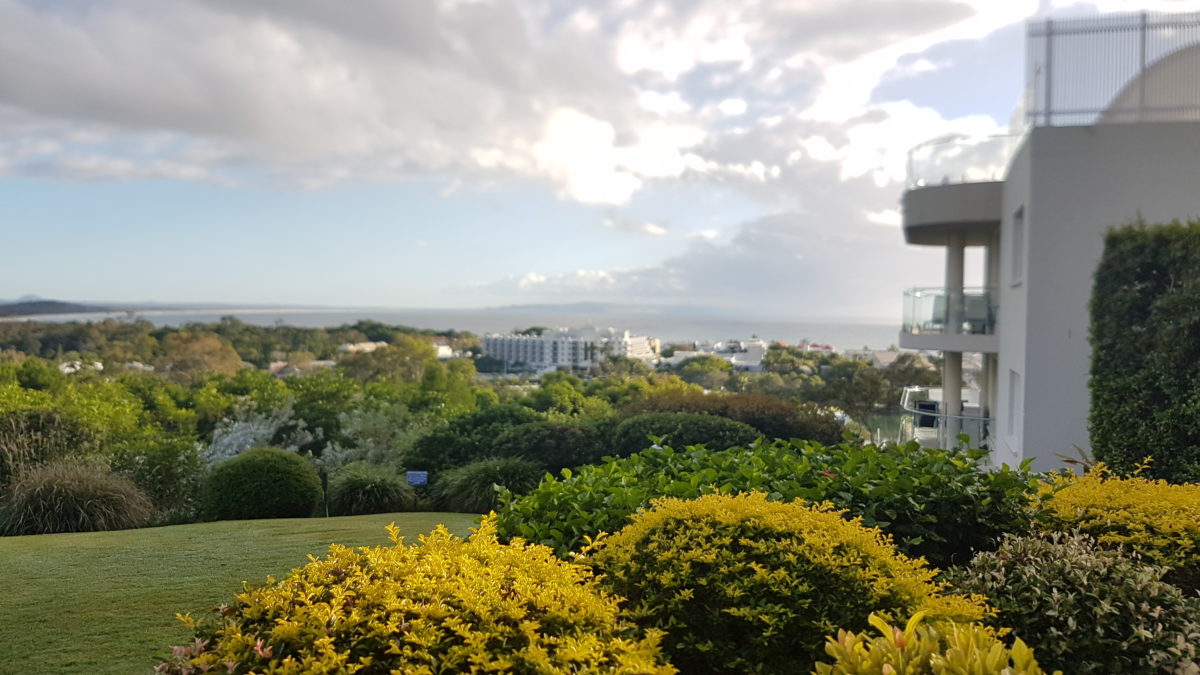In an earlier post, I explored the concept of authenticity and ways to develop it – after listening to a presentation by Jeff Brown at the Surrender Summit. This exposure to Jeff and his thinking stimulated my reading of his early book, Soulshaping, A Journey of Self-Creation – a revealing memoir that tracks his outer and inner journey. As a result of the heartfelt responses to this book, Jeff came to understand that he was not alone in experiencing life’s challenges and exploring the inner journey to seek out peace, happiness and fulfillment. He comments that he came to realise that “so many of us have walked the same trauma trails and endured hardships”.
Jeff contends that his disenchantment with his early adult life was a result of following the “false-path”, instead of the “true-path” – alignment with his unique, profound life purpose. He points out that the world we live in values external achievements not inner progress and constantly distracts us from our life purpose with false rewards and endless enticements designed to capture our attention and cultivate our obsessions.
His personal story captured in Soulshaping describes how he started on his journey to authenticity by listening to his “inner voice” (which he calls “Little Missy”) and exploring his true-path with its multiple challenges and turning points. He argues that the inner voice is “the little voice that knows”, is persistent and unrelenting and contains what he describes as “the karmic blueprint for our destiny”. The challenge is to allow this inner voice to reach our consciousness and influence our words and actions and, ultimately, shape our life choices.
However, the journey to authenticity – alignment with our life purpose – requires what Jeff describes as “gut wrenching, self-admission” because it is only when we expose what is really inside of us that we are able to “liberate our own voice”. Admitting “who we are”, and not persisting with our social disguises (the face we present to the world), is essential for our liberation to a life of joy, profound realisation of our connectedness and experience of the well of ease with its inherent peace and tranquility – a stark contrast to the hurly-burly world we normally inhabit with its unceasing expectations.
Writing our way to our inner home
Jeff suggests that one way to access our true-path and the attendant inner sense of contentment and aliveness, is to begin writing to remove our “emotional debris” and uncover our inner voice. To this end, I have enrolled in his online writing course, Writing Your Way Home, and I have set out on my own writing journey while concurrently exploring Jeff’s journey through reading Soulshaping and his latter book, Grounded Spirituality. My core writing project will be a reflective memoir focused on acknowledging the people who have shaped, or are shaping, my life.
In a moment of synchronicity, I recently listened to an interview with Daniel Goleman, author of Emotional Intelligence: Why It Can Matter More Than IQ, as he was discussing the fact that his life at the time involved parallel endeavours – his writings on emotional and social intelligence and his exploration of meditation through research and long-standing meditation practice. He disclosed that he was pursuing these endeavours on two fronts simultaneously by writing another book about emotional intelligence and writing what he called a “spiritual memoir”. He indicated that this latter inner journey was about the people who influenced him over his life and enabled him to be the person he is (and the person he is becoming). Daniel indicated that he was thoroughly enjoying his memoir endeavour and that he was initially writing it for himself, not necessarily for publication.
Jeff indicated that we each have events and interactions with people in our life that shape us and our way of life. Sometimes these events are traumatic and/or the people we encounter seek to turn us from our path through belittlement, envy or active discouragement. Others seek to support us to be the best we can be and assist us to explore, and stay on, our true path. As we are often reminded, “it is not what we experience in life (including traumas) that matters, but how we respond to life shaping events and people”. In reading about Jeff’s “journey into self-creation”, I came to see some parallels in my life with events and people that were life shaping for him.
Life shaping events and people
Jeff describes a number of key events and people who influenced the direction of his life and his pursuit of a writing path as a manifestation of his profound life purpose. As I read about his life, I experienced flashbacks to my own life as well as an intense motivation to begin writing my reflective memoir. I am strongly convinced that the simultaneous pursuit of his writing course and his life story will provide the fuel to energise my memoir writing and help to sustain me in this endeavour. Already, I have found the following parallels in life shaping events and people:
Adverse childhood experiences
In common with Jeff (and many other people), I had a number of adverse childhood experiences. Jeff describes having a father who wished Jeff had not been born (he wanted a girl, not a boy) and who was violent and abusive towards him, always seeking to diminish him and his achievements. He also had a mother who lived a life of “poverty trauma” and resorted to a world of fantasy as a way to cope with life’s harshness. She “closed her heart” to protect herself. Jeff experienced a life that was tumultuous and destructive as a result of the overflow of his parents’ challenging emotions and the constant state of conflict between them.
I had a similar upbringing with an alcoholic father who was suffering post-traumatic stress disorder (PTSD) as a result of his imprisonment for three years in the Changi Prisoner of War Camp. He sought to drown his pain through alcohol and, while not physically abusive towards me, he would physically attack my mother and, on at least one occasion, put her in hospital with broken ribs. I can relate strongly to what Jeff describes as the verbal assaults of his mother which drove his father “deeper into darkness”. I can hear my mother berating my father about his drinking and wasting our family income, and the resultant shouting and escalating conflict. None of us, including my father who had no psychological or government support (apart from a miserly pension), had any idea of the impact of PTSD on a person’s life and family.
In contrast to Jeff’s mother, my mother lived in the real world but experienced a life punctuated by illness and grief (her four month old son died of a brain tumour when I was 4 years old). She found her life purpose in raising her other five children, including me, and continually sacrificed herself for our physical, emotional and intellectual welfare (professional support for our emotional welfare was unachievable). She worked endlessly at the local Woolworths to sustain us and provide for our private school education. She had high hopes for each of us and encouraged us in whatever we wanted to pursue in our sport, study or work. Unlike Jeff’s mother, she opened her heart to anyone in need and, in turn, accepted food packages from Vinnies to enable us to live from week to week.
Career misfit
Jeff describes his very successful entry into a high-powered career as a defence lawyer. it was only as his Bar Admission Exams approached that he began to have doubts about whether this was a false path or a true path for him even though it involved defence of innocent people who had been subjected to a miscarriage of justice. His inner voice (Little Missy) created some cognitive dissonance for him by suggesting that he was only pursuing the external accoutrements of being a lawyer – fame, visibility, high income and social standing. Ironically, it was when he was trying on a new suit for Court appearances (a clothing accoutrement) that he heard that persistent inner voice yet again, “Who are you really?”
Immediately after I finished high school, I entered a novitiate in Sydney (about 1,000 kilometres from my home in Brisbane) and became an inductee into the life of Catholic priesthood as a contemplative monk. After completing my first year and confirmation in the religious Order, I moved to Whitefriars Seminary in Melbourne (a further 800 kilometres from home) to complete my studies and training before ordination. However, after four years there, I decided that this was not the career for me and returned home with $100 and the suit on my back. I had previously committed to vows of poverty, chastity and obedience as part of my confirmation. The decision to leave required formal approval from Rome to release me from my vows.
He arrived at a crossroads when he was due to sign a lease for a legal office to share with potential law partners. At the time, he was pulled by the Warrior in him and his survival instinct to sign up to an externally rewarding life as a defence lawyer in partnership with supportive colleagues. He described this period of sleeplessness, agitation and hellish indecision as being caught “between direction and exploration”, where he was unable to surrender to the joy of the unknown nor to experience the relief and certainty that came from “knowing where I am headed”. It was when he was in Santorini in Greece that he began to write a journal which led ultimately to his “calling” and true path of being a writer. He refused to sign the lease because his life as a defence lawyer seemed to him to be “living in disguise”, not living his real, unique self.
While I was studying in Melbourne, I consistently scored 90% in the annual oral exams for my various studies in philosophy and theology. It was suggested that I was earmarked to complete a doctorate in theology in Rome because of my academic ability and “model” behaviour as a monk dedicated to daily silence, meditation and study. However, I suffered from severe migraines and constant anxiety about my home situation where the conflict and domestic violence was relentless. I came to think that I had undertaken the vocation as a priest as an escape from my distressful home situation and to win the approval of my mother who was very religious. In some sense I was living my mother’s desire for my career – which filled a deep-seated need on her part. Like Jeff, I was torn between “direction and exploration”.
I had all the accoutrements of success – a sense of doing something worthwhile, high standing in the community and amongst my tutors and colleagues, a very balanced lifestyle and enjoyment of the journey. However, my inner voice caused me to be dissatisfied and I left the Order as I approached ordination as a priest. I had experienced an overwhelming sense of responsibility to the community generally and to my parents in particular. As it turned out, sometime after I returned home, I took my mother away from my father for her own safety (but this is another story). Both my parents blossomed when they were separated and I went on to pursue marriage and a career in the public service.
Reflection
Jeff recalls that as he set out to write a book that “talked about spirituality through the vehicle of my own journey”, he became caught up in self-deprecation. He was “riddled with shame and doubt”, questioning whether anyone would want to read about his “miserable journey”. While he recognised that the process of exploring his historical inner landscape through writing was therapeutic for himself, he doubted whether anyone else would benefit from it. His experience after publishing his book certainly put paid to these doubts about the beneficial effects of his writing for others who read his Soulshaping book.
Jeff encourages each of us to explore our life story and share it with others. His writing course provides the psychological support and technical knowhow, including insights into how to get published. He offers Soulshaping as a flexible template to assist us on our writing journey. His hope is that some of the themes he has written about will resonate with the reader/writer and provide the encouragement to follow our own true path.
Like Jeff, I have had considerable self-doubts about the benefit of writing my own memoir. However, I am encouraged by his experience and support and the resonance I have already experienced with some of the themes in his recorded journey. I am continuously flooded with recollections, insights and ideas now that I have chosen my reflective memoir as my core writing project. I am excited by the prospect of researching aspects of my life and recording my growing self-awareness. I am also flooded with feelings of gratitude towards the people who have helped shape and enrich my life. I can already envision my memoir as an e-book, illustrated with historical images from significant events in my life.
As I continue to grow in mindfulness through my regular practice of meditation, Tai Chi and reflection (including writing this blog), I look forward to exploring further my inner landscape, gaining in self-awareness and emotional regulation and experiencing the joy of creative writing grounded in lived experience.
__________________________________
Image by Robert C from Pixabay
By Ron Passfield – Copyright (Creative Commons license, Attribution–Non Commercial–No Derivatives)
Disclosure: If you purchase a product through this site, I may earn a commission which will help to pay for the site, the associated Meetup group, and the resources to support the blog.




